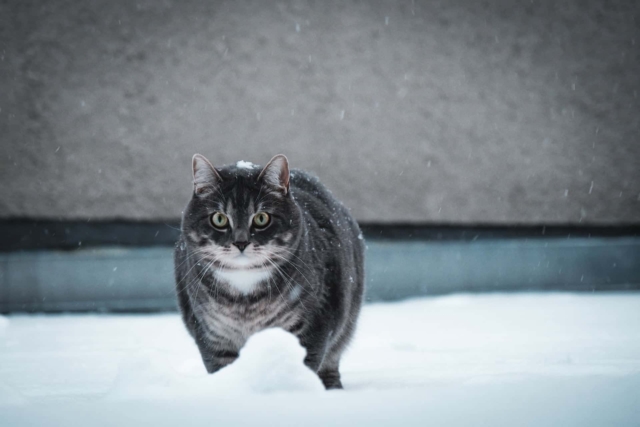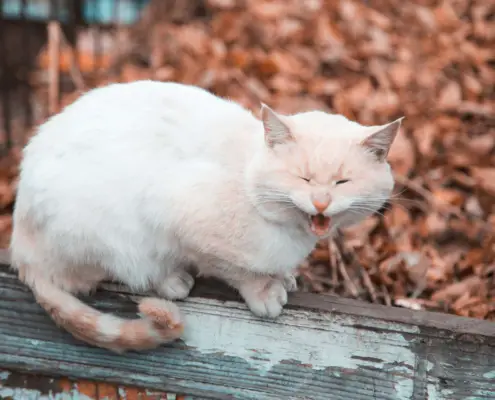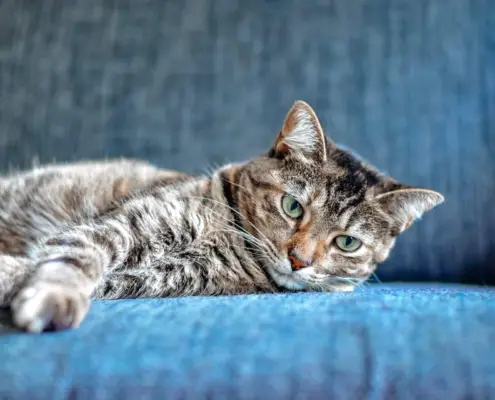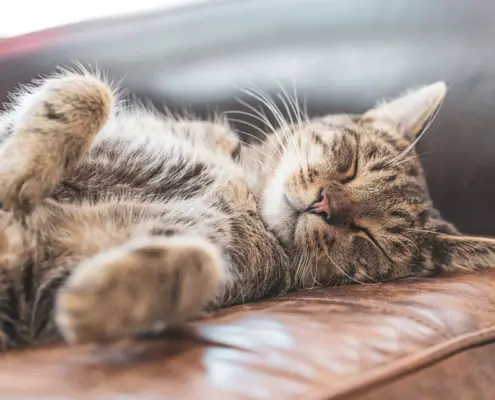
Cats have always been known for their grace and agility, but in recent years, there has been a growing concern about feline obesity. Yes, you read it right – cats can indeed become obese. While it may be tempting to dismiss this issue as a mere taboo, it is crucial to understand the implications of obesity on our feline friends’ health and well-being.
Understanding the Causes of Cat Obesity
Obesity in cats is often the result of a combination of factors, including diet, lifestyle, and genetics. One of the primary causes is overfeeding. Cats have a natural instinct to hunt and eat small, frequent meals. However, when they are provided with an unlimited supply of food, they tend to overeat, leading to weight gain.
Additionally, the quality of the diet plays a significant role. Just like humans, cats require a balanced diet that provides essential nutrients without excess calories. Feeding them a diet high in carbohydrates and fats can contribute to weight gain and obesity.
The Dangers of Cat Obesity
Cat obesity can have serious consequences for their overall health and well-being. Excess weight puts a strain on their joints and can lead to arthritis and mobility issues. Obese cats are also at a higher risk of developing diabetes, heart disease, and respiratory problems. Furthermore, obesity can impact their quality of life, making it difficult for them to engage in physical activities and enjoy their usual playtime.
Signs and Symptoms of Obesity in Cats
It is essential for cat owners to be aware of the signs and symptoms of obesity in their feline companions. One of the most obvious signs is a visible layer of fat covering the ribs and abdomen. Obese cats may also have difficulty grooming themselves, leading to a matted or unkempt coat. Additionally, they may exhibit lethargy, have trouble jumping or climbing, and experience difficulty breathing.
How to Prevent Cat Obesity
Preventing cat obesity starts with understanding their unique nutritional needs and providing them with a healthy lifestyle. The first step is to establish a feeding routine and measure their food portions according to their age, weight, and activity level. It’s important to consult with a veterinarian to determine the appropriate amount of food for your cat.
Regular exercise is also crucial in preventing obesity. Engage your cat in interactive play sessions using toys that encourage them to run, jump, and chase. Providing them with scratching posts and climbing trees can also help keep them active and engaged.
Tips for Maintaining a Healthy Weight for Your Cat
Maintaining a healthy weight for your cat requires a holistic approach. In addition to a balanced diet and exercise, it’s essential to monitor their weight regularly. Keep a record of their weight and body condition score to track any changes. If you notice any significant weight gain or loss, consult with a veterinarian for guidance.
It’s also important to avoid overfeeding treats and table scraps, as these can contribute to weight gain. Instead, opt for healthy, low-calorie treats specifically formulated for cats. Additionally, consider incorporating puzzle feeders into their mealtime routine to stimulate their natural hunting instincts and slow down their eating.
The Role of Diet in Preventing Cat Obesity
When it comes to preventing cat obesity, diet plays a crucial role. Choose a high-quality cat food that is appropriate for their age and lifestyle. Look for products that are labeled as “complete and balanced” to ensure they receive all the necessary nutrients without excessive calories.
Consider feeding your cat a diet that is low in carbohydrates and high in protein. Cats are obligate carnivores, and their bodies are designed to metabolize protein more efficiently. Avoid foods that contain fillers, artificial additives, and excessive amounts of fat.
The Importance of Exercise for Cats
Exercise is not only essential for maintaining a healthy weight but also for promoting overall physical and mental well-being in cats. Regular physical activity helps cats burn calories, maintain muscle tone, and prevent obesity-related health issues.
Engage your cat in interactive play sessions using toys such as laser pointers, feather wands, or interactive treat dispensers. These activities not only provide exercise but also stimulate their natural instincts and keep them mentally stimulated.
When to Seek Veterinary Help for Cat Obesity
If despite your best efforts, your cat continues to struggle with obesity, it is crucial to seek veterinary help. A veterinarian can assess your cat’s overall health, determine their ideal weight, and provide personalized recommendations for weight management. They may also conduct blood tests to rule out any underlying health conditions contributing to weight gain.
It’s never too late to start on the path to a healthier lifestyle for your cat. With proper guidance and support, you can help them achieve and maintain a healthy weight, ensuring a longer and happier life.
Promoting a Healthy Lifestyle for Your Cat
In conclusion, the taboo of cat obesity must be decoded, and the reality understood. Cats can indeed become obese, and it is our responsibility as pet owners to ensure they lead a healthy lifestyle. By understanding the causes, dangers, and prevention strategies for cat obesity, we can take proactive steps to ensure our feline friends remain fit and happy.
Prevention is always better than cure. From establishing a feeding routine to providing regular exercise and monitoring their weight, every little step counts. Consult with a veterinarian for personalized advice and recommendations. Together, we can promote a healthy lifestyle for our beloved cats and ensure they live their best lives.
If you enjoyed my article, I would appreciate you sharing it with your network.

Sima Ndlebe
Sima writes for CatBuzz. He is interested in Cats, Health and Fitness, and Entrepreneurship.
Published: 6 December 2023
Related Articles
Disclaimer
The content found on CatBuzz.org is presented on an "as is" basis and is intended for general consumer information and education purposes only. Any utilization of this information is voluntary and solely at the user's own risk.
None of the articles or content should be regarded as, or used in place of, veterinary medical advice, diagnosis, or treatment. The information provided on the website is purely for educational and informational intentions and should not be considered a substitute for professional guidance from a veterinarian or other qualified expert. The articles are designed to inform consumers about veterinary healthcare and medical matters that may impact their cat's daily life. It should be noted that this website and its services do not constitute the practice of any form of veterinary medical advice, diagnosis, or treatment. CatBuzz.org explicitly disclaims any liability for any direct or indirect damages or losses that may arise from the use of or reliance on the information contained within the content.
Consumers must consult a veterinarian, veterinary specialist, or another qualified veterinary healthcare provider when seeking advice regarding their cat's health or medical conditions. It is important not to ignore, avoid, or postpone seeking medical advice from a veterinarian or other qualified veterinary healthcare provider solely based on information obtained from this website. If you believe that your cat may be experiencing a medical issue or condition, it is imperative to promptly contact a qualified veterinary healthcare professional.



